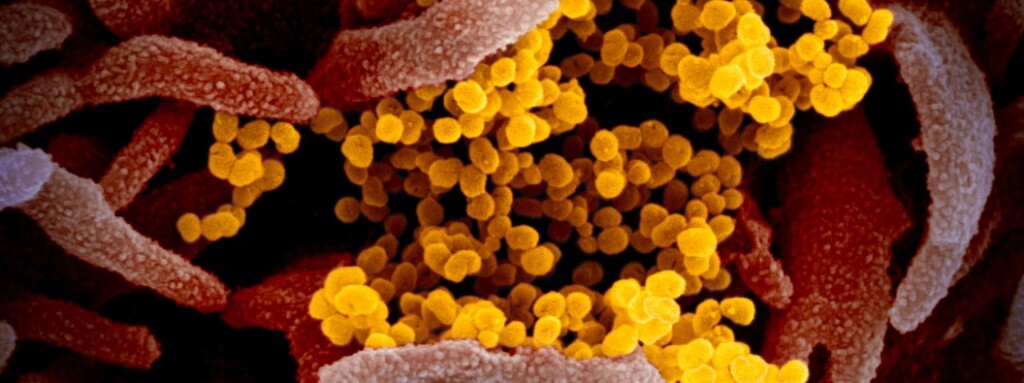Page 27 • (1,007 results in 0.041 seconds)
-
Biology. In addition to the research activities, students receive training and opportunities in: Literature: search, read, and interpret journal articles related to their project Research skills – experimental design, statistical analysis, and data interpretation Instrumentation: hands-on training in the fundamentals, usage, and data interpretation Professional development, communication skills, ethical considerations and research integrity Career planning Professional networking Diversity in science
-

will be executed across the world by any qualified researcher that is interested in participating. In less than one month, researchers from 13 US states plus four locations in other countries signed up to contribute samples during data collection. The researchers will investigate how psychological factors (e.g., perceived risk, knowledge, beliefs) and personal need for structure relate to psychological, behavioral, and health outcomes in response to the COVID-19 pandemic. When data collection is
-
at the end of their internships. More data about what industry is all about. Even if you think you want a Phd, this program allows you to gain insight on what the market is looking for – allowing you to be more strategic in choosing research that will allow you to build a marketable skill set and develop the professional skills that will make you more competitive. Regardless of which trail you eventually blaze, this program allows you to do it with more data about the opportunities out there
-
Information & Technology Services PoliciesPacific Lutheran University provides information technology (IT) services in support of the university’s educational mission. IT services include computer labs, data and voice networks, classroom and instructional technologies, and various administrative information systems. Policies related to these services extend also to copyright infringement, content accessed or downloaded over the network (even with personally owned computers), and appropriate use
-
following courses: DATA 133: Introduction to Data Science I (4) CSCI 144: Introduction to Computer Science (4) MATH 123: Modern Elementary Mathematics I: Number Sense and Algebraic Sense (4) MATH 145: Statistics for Biologists (4) MATH 151: Calculus I (4) MATH 152: Calculus II (4) MATH 242: Introduction to Mathematical Statistics (4) MATH 321: Geometry (4) MATH/EDUC 446: Mathematics in the Secondary School (4)
-

& Recursive Data Structures Novice Debugging Diversity in CS Active and Cooperative Learning Selected Presentations Dale E. Benson Innovation Studies Workshop, Student-Centered Instruction in Computer Science Education, Pacific Lutheran University (October 2018) Invited Presenter, Pairs, Peers and Perceptions of Self: Putting Computer Science Education Research into Practice, Whitworth University (March 2016) PLUTO Online Institute, Developing Videos and Screencasts!, Pacific Lutheran University (January
-
Institutional Research and Records when used. National data (aggregate) will be used as a barometer for progress in mission fulfillment when needed. National peer comparisons may be filtered (e.g. by Carnegie classification) to provide a clearer picture for comparison purposes. Process for Determining Institutional Peers An initial broad list of peer institutions was generated from previous lists used in analysis of competitor schools, survey result comparisons (ex. National Survey of Student Engagement
-
relate to the built environment. Buchholz and Pfaff’s project topics weren’t restricted. Krzmarzick is compiling data for the Sustainability Tracking, Assessment and Rating System – STARS for short. Developed by the Association for the Advancement of Sustainability in Higher Education, the system “is a voluntary, self-reporting framework for gauging relative progress toward sustainability for colleges and universities,” according to the STARS Web site. The reporting system aims to provide a guide to
-
, healthcare, and on and on. And usually, they don’t have “physics” in their job title! Some common job titles for physics majors include: Accelerator Operator Actuary Applications Engineer Data Analyst Design Engineer High School Physics Teacher IT Consultant Lab Technician Laser Engineer Optical Engineer Software Developer Systems Analyst Technical Specialist Web Developer See Tool #1: Common Job Titles at the Society of Physics Students Career Toolbox for more ideas and inspiration for physics job
-

rates, particularly for historically marginalized students. By expanding the program, organizers hope to support the PLU community by connecting students to resources to support their transition and success, providing opportunities to forge meaningful relationships with peers and staff, and helping to deepen their sense of belonging in their first semester at PLU. The Quigg Award funding will expand professional development, hire and train TAs, and support mixed data collection methods, including
Do you have any feedback for us? If so, feel free to use our Feedback Form.


